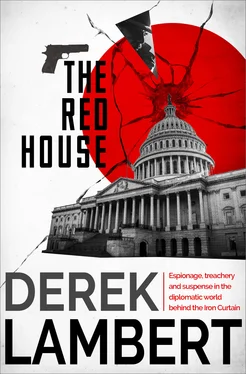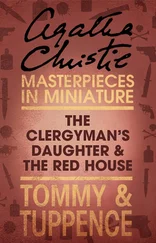Although, in the camouflaged recesses of his soul, Valentin Zuvorin loathed and feared aggression, as anyone who had lived through the siege of Leningrad well might. He endured the humiliation of the Cuban missile crisis because a world war had been averted; he secretly rejoiced when the Arabs capitulated to the Jews, when the Koreans came to terms; he grieved before sleep at the plodding tragedy of Vietnam. He envisaged a time—not in his day—when the world solved its problems through diplomacy. Provided the settlement favoured Socialism.
The ambassador’s philosophies were complicated by one particular factor: he had come to regard Washington as more of a home than Moscow. He enjoyed the company of many of its inmates and considered John F. Kennedy to have been the finest man he had ever known. Such was his easy absorption into the Washington scene that he had been summoned to the Kremlin to explain his attitudes. How had he arrived at the conclusion that the President did not want to escalate—even the new phraseology of war was ugly—the Vietnam hostilities into an all-out attack on Socialism? ‘Because, gentlemen, I know the President and, with respect, you don’t.’ So Soviet and American leaders had subsequently met and now the Kremlin was willing to talk about missile disarmament.
A small aching protest behind the sternum. Zuvorin took a white tablet (American) with his last sip of tepid tea.
How much longer before his recall? Until they found another man as fluent and deceptively amiable in his conversations with the Americans as Valentin Zuvorin. A difficult task, the ambassador flattered himself.
Within limits he enjoyed the socializing. The guarded banter, the outrageous flattery. ‘You are so suave, Mr Ambassador. So witty—so unlike so many other Russians …’ Hand to the mouth at the Martini indiscretion. Himself—he only took two drinks, no more. But, of course, flattery, however flagrant, always worked. He cherished his reputation for cultivated conversation; his laugh, he had been told, was a pleasure to hear.
(How dreary, by comparison, were the parties given by his Socialist allies. Valentin Zuvorin ducked the gaze of V. I. Lenin high on the wall.)
Black ties and banquets and cocktails. Such dismay when he declined vodka—‘I bought it especially for you’—and took whisky. World affairs and American politics bundled together into a hub of parochialism in which treaties and pacts were as casually treated as village-green boundaries. Lovely girls with haughty faces offering their bodies, young men their souls. And the official spies with medals jingling, as subtle as tanks. And the spies spying on the spies; always a little obsequious, just as blatant with their trained ears and stilled tongues. And others less obvious.
Such a magnificent, incongruous phenomenon, this Washington. All its palaces of power, its burrows of bureaucracy, archives of history, vaults of intrigue, all clustered within a few blocks of celebrated architecture; squalor halted around the edges of the village green. The White House and the Capitol, the thrones of Western power, overlooking the garbage cans of domesticity.
Often Valentin Zuvorin felt sad about the American people. An emotion dangerously akin to sympathy. Their patriotism, their naïve disgust at corruption in their midst, their bright scalpels of sincerity slashing ineffectually at their cancers, their decent inability to crush dissidence as we crushed the Hungarians.
Most of all Zuvorin admired their unequivocal belief that they were right. That was their weakness. The crusaders had lost and they would lose.
The ambassador sighed. He picked up his agenda for the day. While his aides digested official anger over the Pueblo incident—the Americans’ crime, Zuvorin privately thought, was getting caught—he would interview a newcomer to the flock. Vladimir Zhukov.
He replaced his diplomatic mask and looked Lenin straight in the eye.
The ballroom at the top of the marble stairs was empty except for a grand piano and a couple of chairs, the gloom heavy behind the half-closed drapes on the tall windows.
Zuvorin explained, ‘I sometimes have informal chats here because it’s cooler. Did you know,’ he asked chattily, ‘that our embassy is said to be the hottest building in Washington during the winter? About eighty degrees, I believe. It’s too hot. But, of course, we Russians are used to heat indoors in winter.’
The ambassador appraised Zhukov. A good servant of the Party, he judged. Perhaps a little too honest with himself; a mouth that betrayed a poetic soul. Although what the hell was wrong with a poetic soul from a country that had produced Tolstoy, Tchaikovsky and Pushkin, Zuvorin couldn’t imagine. He was pleased that they were now sending him people instead of puppets.
Two men who had survived war and purges; one senior because of circumstance and ambition. To me he is still young, Zuvorin thought. To himself he is hopefully young. To the young themselves he is an old man—and I am senile. ‘And how are you enjoying Washington?’
‘It’s interesting,’ Zhukov said carefully. ‘Much as I imagined it.’
‘But still a shock to the system … not quite as it is painted to us before we leave the Soviet Union?’
‘Not quite.’
‘You are a good diplomat, Vladimir Zhukov.’
‘Thank you, sir.’
Not quite as it is painted! Such ludicrous understatement. Why couldn’t the two of them share the truth? The oppressed masses smoking cigars and running two cars. That’s what hits you. We both know it, so why not be honest with me? But he was being naïve to expect such candour between a second secretary and an ambassador. He put the two chairs in front of the grand piano because it was an unlikely nest for a microphone. Not necessarily an American microphone: there were plenty of Soviet bugs around the place. It was part of the system. Why not? if you had nothing to hide. On the other hand you could hardly expect junior members of the staff to be expansive within such a system. ‘What,’ Zuvorin asked, ‘has impressed you most about America?’ The puppets usually denounced the exploitation—before he stopped them.
‘Their houses, I think,’ Zhukov said.
‘The houses? In what way?’
‘The way they live in units. Isolated, if you like from each other.’ Zhukov felt his way with caution. ‘I just don’t see how they can ever understand us. The communal soul of Russia, I mean. Their characters are so different, so self-sufficient …’
Together they saw the hibernating family and friends around a stove in a wooden village hut; the city apartments with their communal kitchens and bathrooms; the old and the new settings of shared gaiety, love and strife.
‘An unusual first impression, Comrade Zhukov. But I don’t think for one second that they want to understand us. It is we who should try and understand them—it is we, after all, who are trying to spread Marxist-Leninism throughout the world.’
‘You are right, of course,’ Zhukov said. ‘But it seems a shame …’
‘I believe,’ said Zuvorin, skirting the tortuous alleys that might lie ahead, ‘that you speak excellent English. That is how you came to be given this post. Where did you learn the language? I must confess I am a little jealous.’ He waited.
‘Your English is perfect,’ Zhukov said.
Zuvorin nodded happily. He did enjoy flattery. But at his age was it not forgivable?
‘I studied languages at the university,’ Zhukov said. ‘Then I became an interpreter in the Army. I improved my English when we met the British and Americans in Berlin.’
‘Ah so. Our allies. They should have followed Patton’s advice. Where would we be then, comrade?’
Zhukov said he didn’t know where they would be.
Читать дальше












